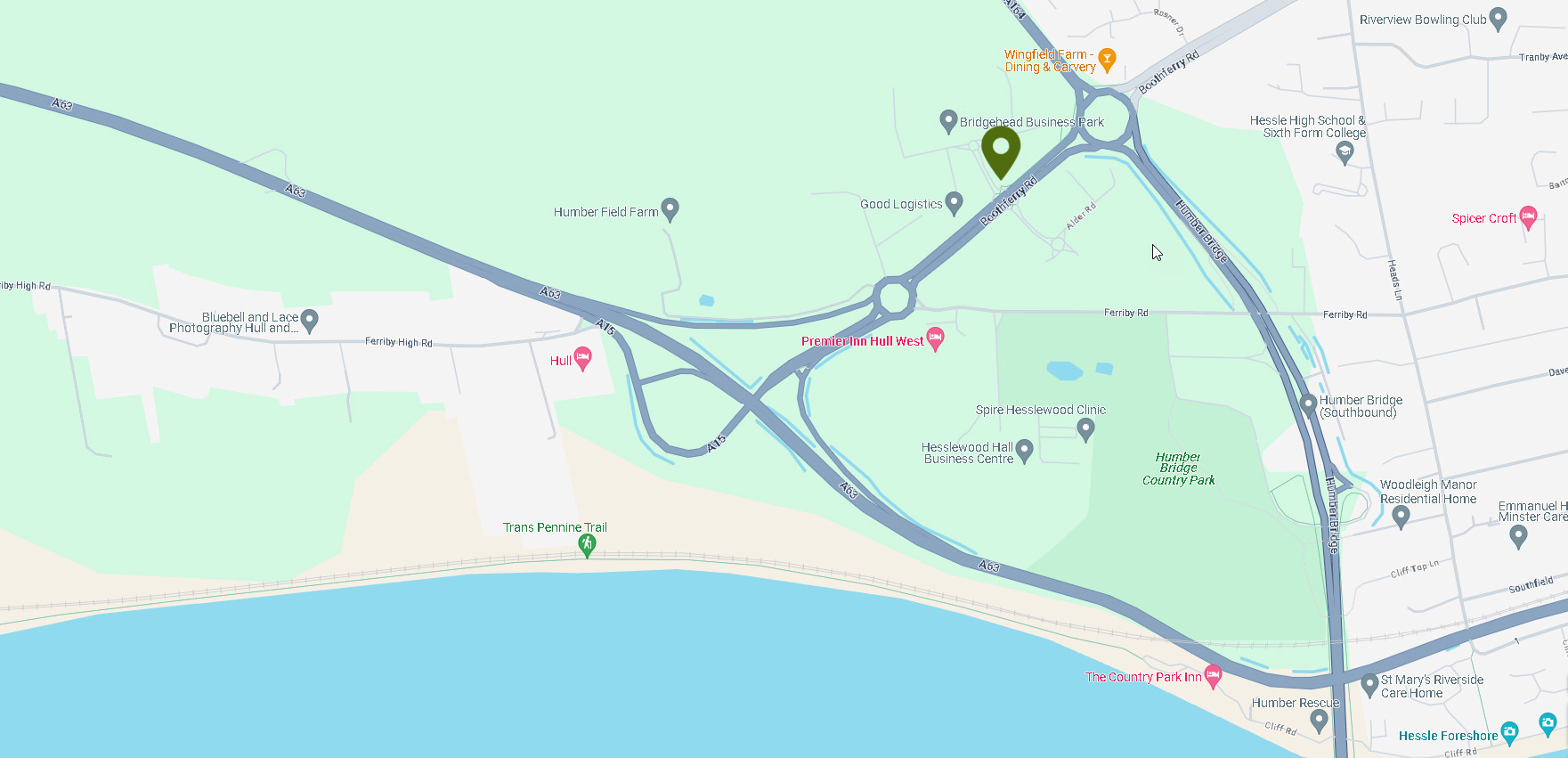- call us now! 01482 692421
How to catch up on your pension savings
Apr 11, 2024
The most effective way to create a large pension pot, and therefore a decent income in retirement, is to start young. However, this is a fact that most people don’t appreciate when younger as retirement simply seems too far away.
Whether you started saving for your pension when you were young or in later years, life can get in the way of building up a sizeable nest egg for retirement. You're certainly not alone if you’ve missed some pension contributions or fallen behind on your pension schedule. The good news is, there are several ways you can catch up on your pension savings. This guide will help you choose the most suitable avenue to top up your pension.
Don’t forget that your pension is only part of your retirement planning. Our team can help you create a viable retirement plan.
Top reason to catch up
There are many reasons why you may need to catch up on your pension. One of the most common is missed payments due to periods without work. This typically happens because of sickness, unemployment, or taking time away from work to raise a family. The result is a tightening of your financial belts and pension contributions being reduced.
Catching up is advisable as it will give you a higher income in retirement. For the 2023/2024 tax year, the full state pension is set at £203.85 a week. For that, you need to have paid enough NI contributions for 35 years. Anything less than 35 years will reduce the amount you can get from the government. That means you may not have enough to live comfortably in retirement. Alongside this, you may have a private or work pension. Again, if your pension contributions have dropped off, this may not reach the weekly income you had hoped for when you retire.
Now is the time to start catching up. The bigger your pension pot, the greater your retirement income and the easier it will be for you to enjoy life in retirement.
Check your National Insurance record
Accessing your National Insurance record requires a Government Gateway account. You can either create a new account or sign in to an existing one. You’ll need your NI number to do this. Once it’s created, log in and locate the link to ‘check your National Insurance records’. This will show you how many qualifying years you have paid NI over the course of your working life. You need a minimum of 10 years of contributions to get any state pension and 35 years or more to get the full rate.
If you have enough time to reach 35 years of NI contributions before you get to retirement age, you don’t need to catch up. If you haven’t contributed enough there are two options available to you:
1. Buy pension years
In some cases, the government allows you to fill gaps in your National Insurance record by 'buying' missing pension years. However, there's a deadline: you can typically only buy back the last six years. There's currently a temporary extension specifically for gaps in the 2016 to 2017 or 2017 to 2018 tax years. You now have until April 5th, 2025 to make these contributions. For example, you can make catch-up payments for the tax years from 2018-2019 to the end of 2023-2024, but the payments must be submitted by 5 April 2025. After this date, the catch-up period is from 2019-2020 and must be submitted by 5 April 2026.
To catch up, you’ll need your NI record which will show you the catch-up amounts needed. To pay them, you’ll need to contact the DWP. They will provide you with a reference for the National Insurance catch-up years. They can also offer advice regarding which years are best to pay.
You can make your payment online via the government website, by sending a payment from your bank or by using an online/telephone banking service. It’s also possible to pay by cheque. You’ll need your DWP reference number and the HMRC bank account details: both are available on their website.
2. Check the lump sum NI scheme
Until April 2016 you needed 30 years of NI contributions to get the full state pension. After 2016, you need 35 years. To help people caught in the changeover period, the government introduced the lump sum NI allowance. It allows you to pay voluntary contributions for the period from 2006 to date. However, this voluntary contribution is only possible until 5 April 2025.
You should speak to our team before making any payment to ensure it’s in your best interests. While catching up on your NI contributions is generally a good idea, it’s only necessary if you think you will fall short of the required 35 years for a full pension.
Review your private pensions
The state pension is unlikely to be the only pension you’re relying on. Private and work pensions are also an excellent way to save for retirement. However, it’s easy to reduce or pause these payments and forget to start again. There is no dedicated process for catching up, you simply need to increase your contributions.
However, before you start, it is worth checking for any forgotten pensions. You can often combinee these to increase your pension pot. It’s possible to use the government’s pension tracing service to help you locate pensions you’ve forgotten about: it’s more common than you may think. You can also contact pension providers directly. We can help with this.
Check your annual allowance
Most people are allowed to pay up to £40,000 into a pension fund annually. If you don’t contribute the full amount, you’re allowed to carry forward any unused amount of the allowance. In other words, if you pay £20,000 into your pension one year, you’re £20,000 under your allowance. This can be added to a future allowance, provided it is used within three years. That means, in the following year, you can pay as much as £60,000 into a pension scheme. That’s the annual allowance of £40,000 plus your unused allowance from the previous year.
Checking how much you have paid into your pension for each of the last three years will tell you how much you can pay this year.
How to increase contributions to private pensions
It’s worth talking to us first, we can help you calculate how much extra you should be paying to get the pension income you require in retirement. There are several ways in which you can find the funds to increase your contributions.
· Review expenses
Perhaps the most obvious starting point is to create a budget. That’s a list of your expenses and income. This will help you identify how much money you have left after covering all of your expenses. Make sure you budget for everything, such as shopping and entertainment, not just your bills. If you have any money left you can put all, or some of it, into your pension fund. If you don’t have savings, you may want to split what’s left to build an emergency fund.
This is also a good opportunity to research how essential your expenses are. If you can reduce any regular payments or eliminate them, you’ll have additional funds available to pay into your pension.
· Ask for a raise
Catching up, or increasing the lump sum in your pension, is only possible if you have additional funds to put in the pot. With the current cost of living crisis and expensive bills, it’s quite likely that you don’t have any spare funds.
Whether that’s the case or not, it’s best to be proactive. One of the simplest ways to increase your income and direct the extra funds into your pension is to ask your employer for a raise.
Before you do so, take the time to list why you deserve a raise, what you bring to the business and what other responsibilities you feel you could realistically take on. It’s much harder for an employer to say no when you have clear reasons to say yes!
· Request a pension increase from your employer
An alternative approach is to ask your employer to increase their pension contribution. It’s standard for workplace pensions to be a percentage of your annual salary, matched by your employer. Currently, you are required to pay 4% of your earnings into the pension. Because you’re saving on tax this is the equivalent of 5% of your earnings. Your employer must pay at least 3% of your wages. In many cases, they will match your contribution, to a limit.
Check with your HR department to find out what that limit is. You may be able to increase your contribution and get more from your employer. If not, ask your employer if they would be willing to pay an extra percentage into your pension. Most employers will agree to this provided you match the increase.
It doesn’t sound like much but consider this. If your annual wage is £10,000, 8% pays £800 into your pension a year. In contrast, 10% pays £1,000 in every year. Over 30 years that’s £30,000 of contributions versus £24,000. If your employer is contributing an extra 1% to match yours, your monthly contribution is less than £8.50 and that’s before tax.
In short, increasing your contribution percentage is a surprisingly affordable way to boost your pension pot.
· Add bonuses
Many businesses offer bonuses but the amount may vary depending on why the bonuses are being given. However, any size bonus can help you catch up on your pension and boost your retirement pot.
If you wish to add your bonus to your pension, it’s a good idea to ask your employer to process it as a bonus sacrifice. This means it will be put into your pension before tax, increasing the contribution and boosting your retirement funds even further.
· Consider a second job
If you’re still struggling to find extra funds to boost your pension, you may want to consider a second job. Thanks to the digital revolution there are many opportunities to earn money online. Consider your favourite hobbies and how you could earn money from them.
Anything you earn can be paid into your pension pot. Of course, you should deduct tax first.
Delaying your pension
You are currently allowed to start collecting your state pension from the age of 66, although this will change to 67 by 6 March 2028. However, reaching retirement age doesn’t mean you have to take your pension.
You need to submit a claim to start getting your state pension. However, do nothing and your pension will be deferred. If you defer for 9 weeks, your pension will be increased by 1%. That means, over a year it can increase by 5.8%. If you’re in good health and still working at retirement age, you can significantly increase the value of your pension by not collecting it. The longer you leave it, the bigger your pot will get.
Making the most of your pension income
The aim of catching up on your pension savings and increasing your pension pot is to ensure you can afford your desired lifestyle in retirement. However, there is more to your retirement income than the value of your pension fund. Our specialist team is here to help you create your pension plan and turn it into the best possible income for your retirement. Contact us today to find out how we can help you.


